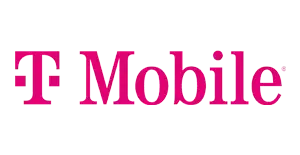5G Home Internet Comparison: T-Mobile vs Verizon vs AT&T
T-Mobile

- Speed - 182 Mbps
- Pricing - $50/mo.
- Service Type - Fixed Wireless
- Equipment Fee - $0 a month
- Data Cap - Unlimited Data
Call to Setup Services
Call Now : (877) 804-1321Verizon

- Speed - 300 Mbps - 1GBPS
- Pricing - $50-70/mo.
- Service Type - Fixed Wireless
- Equipment Fee - $0 a month
- Data Cap - Unlimited Data
Call to Setup Services
Call Now : (844) 967-4555AT&T

- Speed - 300 Mbps - 1GBPS
- Pricing - $50-70/mo.
- Service Type - Fixed Wireless
- Equipment Fee - $0 a month
- Data Cap - Unlimited Data
Call to Setup Services
Call Now : (844) 905-5002About 5G Home Internet
5G Home internet service is a fixed wireless internet service that offers high-speed connectivity and ultra-powerful network performance. It works by beaming 5G radio waves from cellular towers to a special home gateway that converts the radio waves to WiFi. This kind of internet at home works more or less like it does on a mobile phone, where a router with a 5G SIM card is required. 5G home internet commonly offers speeds around 100-300 Mbps, although it can reach up to 1,000 Mbps based on the plan. Many major internet service providers now offer 5G home internet, allowing homeowners to wirelessly connect homes without cables. Currently, Verizon Internet offers the best blend of performance and affordability with a $50/mo flat rate and 300 Mbps download. The goal of 5G technology is to make internet connectivity faster and more accessible for everyone.
How does 5G Home Internet Work?
5G Home Internet operates on a fixed wireless access system, utilizing a cellular network to provide internet connectivity to homes. The connection between the provider and the user relies on radio frequencies, with 5G using a relatively high frequency of up to 30 GHz compared to 4G's frequency of under 6 GHz. This wireless network requires a router with a 5G SIM to create a link between the user's home and the mobile data network. The fixed wireless terminal on the premises receives the signal from the base station that wirelessly connects to it. The speeds provided by 5G Home Internet typically range from 100 Mbps to 300 Mbps, although depending on the plan, speeds of up to 1,000 Mbps can be achieved. As with any wireless network, users may not necessarily experience the highest speeds due to factors such as signal strength and congestion. Providers such as Verizon offer flexible plans that require no annual contracts, extra fees, or complicated setup, making 5G Home Internet an attractive alternative to traditional home internet.
Verizon 5G Home Internet
Verizon 5G Home Internet is a wireless home internet service powered by 5G Ultra Wideband technology. With plans starting at $25/month and no contracts or data caps, customers can enjoy reliable speeds and multi-year price guarantees. In areas where it is available, Verizon 5G Home Internet boasts faster download speeds than satellite internet services and T-Mobile Home Internet. The average download speeds range from 85 to 300 Mbps, with some locations experiencing speeds up to 1 Gbps. Additionally, Verizon offers a two-year price guarantee for their base internet plan. Overall, Verizon 5G Home Internet provides a fast and simple wireless internet solution for households that are seeking an ultra-powerful network performance and speed.
T-Mobile 5G Home Internet
T-Mobile has recently launched its 5G Home Internet service, which promises to deliver high-speed internet to millions of Americans. The service utilizes T-Mobile's 5G network, which boasts impressive speeds and low latency. With this service, customers can enjoy internet speeds of up to 100 Mbps and unlimited data without worrying about data caps or overage charges. What's more, customers can set up the service themselves without the need for a technician visit or installation fee. The service also comes with a 30-day satisfaction guarantee, allowing customers to try it and cancel if they are not satisfied. T-Mobile's 5G Home Internet aims to shake up the broadband market by offering an alternative to traditional providers, particularly in areas with limited options.
AT&T 5G Home Internet
AT&T offers a new wave of home internet access with their 5G Home Internet service. This fixed wireless option utilizes their existing cellular network to deliver internet directly to your home. It boasts high speeds (potentially reaching up to 5G speeds), making it ideal for streaming, gaming, and downloading large files. However, availability remains limited to select areas. If you're curious about ditching the cable and exploring a potentially faster wireless alternative, check AT&T's website to see if 5G Home Internet is available in your area.
Pros of 5G home internet
1. Ultra-fast speed
One of the most significant advantages of 5G home internet is blazing-fast speed. With the potential to reach speeds up to 1 Gbps, it is several times faster than the current 4G networks. This means quick downloads and uploads, streaming 4K videos without buffering, and a seamless online gaming experience.
2. Quick deployment
Unlike traditional wired connections, 5G home internet does not require a physical infrastructure to be installed in your home. As a result, it is relatively easy to set up and can be deployed quickly, making it ideal for areas that are underserved by traditional broadband.
3. No data caps or annual contracts
Another benefit of 5G home internet is that many providers offer unlimited data plans, which means you won't have to worry about exceeding your data limit or paying extra charges. Plus, most providers do not require you to sign up for an annual contract, giving you greater flexibility and control over your internet service.
4. Ideal for remote work and learning
In today's world, many people are working and learning from home. With 5G home internet, you can enjoy a reliable and fast connection, which is essential for video conferencing, online collaboration, and accessing cloud-based applications.
5. Encourages innovation
With its ultra-fast speed and low latency, 5G home internet opens up possibilities for new and innovative services that were previously impossible. From virtual and augmented reality to smart homes and cities, the potential for growth and expansion with 5G home internet is limitless.
Cons of 5G home internet
1. Varying Download Speeds: One of the biggest downsides of 5G home internet is the fact that download speeds can vary greatly. Due to the nature of the fixed wireless connection, users in certain areas may experience slower speeds than others.
2. Inconsistent Availability: Although 5G home internet is becoming more widely available, it still isn't available in all areas. This can be a major drawback for users who need a reliable internet connection.
3. Performance Swings During High Network Congestion: If your area is experiencing high network congestion, you may notice swings in performance when using 5G home internet. This can be frustrating for users who require a consistent connection.
4. Difficult to Install and Deploy: Unlike traditional wired internet connections, 5G home internet is much harder to install and deploy. More transmitters are needed to cover the same area as current 4G networks, which can make setup more complicated.
5. Vulnerable to Security Breaches: The management software for 5G home internet can be vulnerable to attacks. This means that a breach in any part of the carrier's or enterprise's infrastructure could create serious security problems for users.
6. Limited Availability and High Prices: While 5G home internet is becoming more widely available, it is still limited in terms of availability. Additionally, higher speeds come at a premium price, making it difficult for some users to take advantage of this technology.
7. Fixed Wireless Users Take a Back Seat: During times of high network congestion, fixed wireless users may experience slower speeds than mobile users. This can be frustrating for users who require a fast and reliable internet connection.
5G Home Internet Equipment Requirements
A professional setup for 5G Home Internet is only available in select areas, and customers will need a 5G router and a 5G SIM with a data plan. The Netgear Nighthawk M6 is a recommended router option, although it does come with a hefty price tag of $800. It is important that the equipment is high-quality, as it can significantly affect the overall performance of the network. It should comply with the limits for a Class B digital device, pursuant to Part 15 of the regulations. Other factors to consider include credit approval and possible deposit requirements, as well as advertised wired speeds versus actual wireless speeds due to device limitations. Customers should compare plans and equipment options carefully, taking into account potential data limits or extra charges for equipment, taxes, or data overages.
What to Know About 5G Home Internet
5G home internet promises lightning-fast speeds for streaming, gaming, and downloads. While exciting, consider this: availability is limited, and signal strength can be affected by distance and obstructions. Research availability and your internet needs before switching. It could be perfect for tech-savvy households in well-covered areas.
FAQ about 5G Home Internet
1. What is 5G Home Internet?
A: 5G Home Internet is a wireless internet service that uses 5G cellular technology to provide high-speed internet to homes.
2. What are the benefits of 5G Home Internet?
A: 5G Home Internet offers faster download and upload speeds, making it ideal for activities like streaming video, online gaming, and video conferencing. It is also a great option for areas where traditional wired connections are not available.
3. Which providers offer 5G Home Internet?
A: Currently, Verizon & T-Mobile offer 5G Home Internet service.
4. What are the typical download speeds for 5G Home Internet?
A: The typical download speeds for 5G Home Internet vary by provider and location. T-Mobile customers can expect download speeds between 33-182 Mbps, while Verizon offers speeds up to 300 Mbps.
5. Is 5G Home Internet more expensive than traditional internet services?
Verizon 5G Home Internet plan starts at $50 per month, while T-Mobile's plan starts at $25 per month when combined with a qualifying mobile plan.
6. Is 5G Home Internet available in all areas?
Currently, 5G Home Internet is only available in select areas. It is important to check with your provider to see if it is available in your area before signing up for service.
7. What equipment is needed for 5G Home Internet?
In most cases, a 5G Home Internet router or modem is needed to connect to the 5G network. Your provider will typically provide this equipment as part of the service.